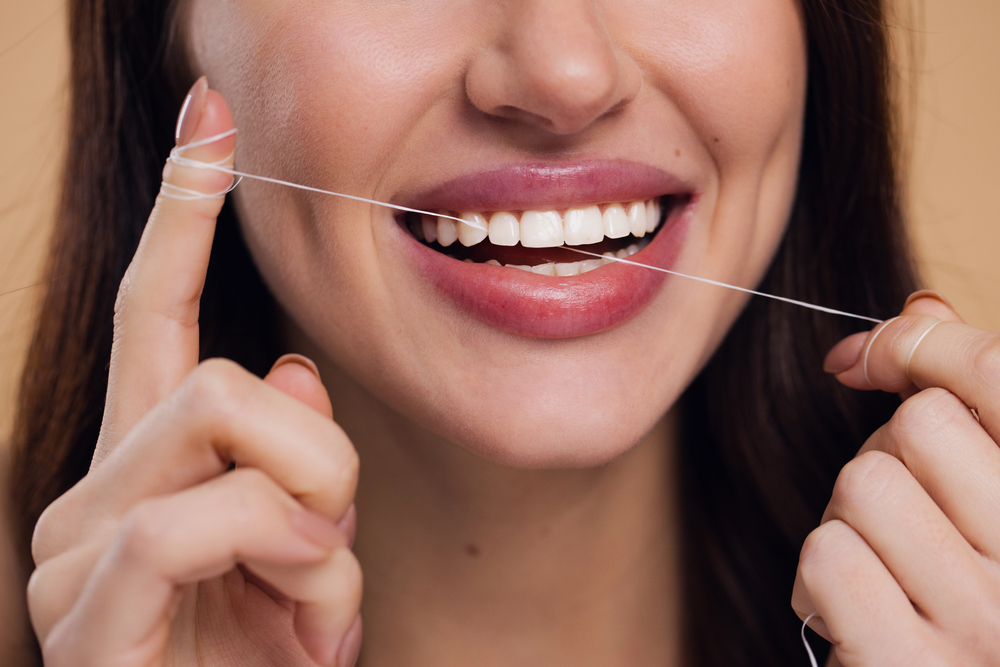How Stress Affects Your Teeth
Oct 10, 2025

Most people know stress can take a toll on their overall health, leading to headaches, high blood pressure, or trouble sleeping. But did you know that stress can also have a serious impact on your oral health? Your teeth and gums are not immune to the effects of chronic stress. In fact, stress-related habits and physical responses can contribute to dental problems that may go unnoticed until they cause discomfort or damage.
The Mind-Body Connection in Dentistry
When you’re stressed, your body responds with a surge of hormones like cortisol and adrenaline. While these hormones help you handle short bursts of pressure, long-term stress can disrupt your body’s natural balance. Your mouth is particularly vulnerable because it’s influenced both by physical tension and by habits people develop when they’re overwhelmed.
This connection between mental and oral health is why dentists often see signs of stress in their patients’ teeth, gums, and jaw. The sooner these signs are spotted, the easier it is to prevent long-term damage.
Common Dental Problems Linked to Stress
Stress can affect your oral health in several ways, some of which you might not immediately associate with being overwhelmed or anxious. Understanding these common dental problems can help you take proactive steps toward protecting your teeth and gums.
#1
Teeth Grinding and Jaw Clenching (Bruxism)
Stress often leads to unconscious habits like grinding your teeth or clenching your jaw, especially at night. This condition, called bruxism, can:
- Wear down tooth enamel
- Cause sensitivity and even cracks in the teeth
- Lead to jaw pain, headaches, and temporomandibular joint (TMJ) disorders
Because bruxism often happens during sleep, patients may not realize they’re grinding until their dentist notices the damage.
#2
Gum Disease
Chronic stress weakens the immune system, making it harder for your body to fight off infection. This can increase your risk of gum disease (periodontitis), which starts with inflammation and bleeding gums but can progress to bone loss and tooth loss if untreated.
Stress can also cause people to skip brushing or flossing when they’re tired or overwhelmed, giving harmful bacteria more opportunity to thrive.
#3
Canker Sores and Oral Ulcers
Have you ever noticed painful little sores inside your mouth during particularly stressful times? Stress can trigger canker sores and oral ulcers. While these aren’t contagious or usually dangerous, they can make eating and talking uncomfortable.
These sores often clear up on their own, but if you notice them recurring frequently, it’s worth mentioning to your dentist.
#4
Dry Mouth
Stress, along with certain medications used to manage anxiety or depression, can reduce saliva flow. This condition, known as dry mouth, increases your risk of cavities and gum disease because saliva plays a key role in rinsing away food particles and neutralizing acids in the mouth.
Chronic dry mouth can also make eating, speaking, and swallowing uncomfortable.
#5
Neglecting Dental Care
When life feels overwhelming, oral hygiene routines often take a back seat. Skipping regular brushing, flossing, or dental checkups can quickly lead to cavities, plaque buildup, and more serious oral health concerns.
Even short lapses in care can give bacteria the chance to cause long-term damage.
Signs You May Have Stress-Related Dental Issues
It’s not always easy to connect dental problems with stress, but there are warning signs you can watch for. Recognizing these early gives you the best chance of preventing long-term damage.
Some red flags include:
- Waking up with jaw pain, headaches, or sore teeth
- Noticing flattened, chipped, or sensitive teeth
- Frequent mouth sores
- Persistent dry mouth
- Red, swollen, or bleeding gums
If you’re experiencing any of these, it’s a good idea to mention them to your dentist. They can help determine if stress is playing a role.
Protecting Your Smile During Stressful Times
While stress is sometimes unavoidable, there are practical steps you can take to protect your oral health. From maintaining good hygiene to finding healthy outlets for stress relief, these small actions can make a big difference in your dental well-being.
Practice Good Oral Hygiene
Stick to the basics: brush at least twice a day with fluoride toothpaste, floss daily, and rinse with mouthwash if recommended by your dentist. Even when you’re busy, a consistent routine is your best defense.
Use a Night Guard
If you grind your teeth, your dentist may recommend a custom night guard. This protective device cushions your teeth and prevents further damage while you sleep.
Night guards are often one of the most effective ways to reduce stress-related wear and tear on your teeth.
Manage Stress in Healthy Ways
Incorporate stress-relieving activities into your day, such as:
- Exercise or yoga
- Deep breathing or meditation
- Listening to calming music
- Spending time outdoors
Not only will these reduce stress, but they’ll also benefit your overall health.
Stay Hydrated
Drinking water throughout the day helps combat dry mouth and supports saliva production. Sugar-free gum can also stimulate saliva flow.
Hydration is one of the simplest yet most powerful tools for maintaining oral health during stressful times.
Don’t Skip Dental Checkups
Regular visits allow your dentist to catch early signs of stress-related issues before they become serious. Professional cleanings and exams are essential to maintaining a healthy smile.
Even if you’re busy, prioritize those appointments—they’re worth it.
When To Talk to Your Dentist
If you’re experiencing ongoing stress, it’s important to let your dental team know. They can provide solutions tailored to your situation—whether that’s prescribing a mouth guard, recommending treatments for gum disease, or giving tips for managing dry mouth.
Your dentist is not only there to treat problems but also to help you prevent them.
Final Thoughts
Stress may feel like it’s all in your head, but your teeth and gums can tell a different story. From grinding and jaw pain to gum disease and cavities, the effects of stress on your mouth are real and significant. By being aware of the warning signs and maintaining healthy habits, you can protect your smile even during life’s most stressful seasons.
And remember: if you’re concerned about how stress is affecting your teeth, schedule a visit with your dentist. A little preventive care today can save you from bigger dental problems tomorrow.
For informational purposes only.













